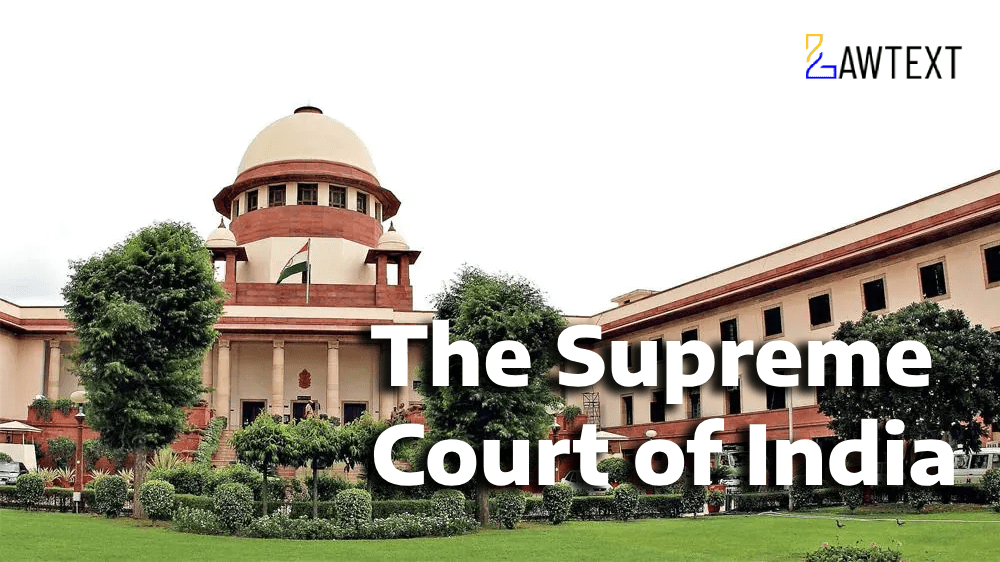CASE NOTE & SUMMARY
The Supreme Court examined the validity of certain arbitration appointment procedures under the Arbitration and Conciliation Act, 1996. The judgment addresses whether processes allowing one party (often a government entity) to appoint arbitrators unilaterally violate principles of independence, impartiality, and equality in arbitration, as prescribed by Indian law. Emphasis was placed on balancing party autonomy with the mandatory statutory principles to ensure a fair arbitration framework, specifically when dealing with public-private partnerships.
1. Background to the Case
- Case Details: The Central Organisation for Railway Electrification (CORE) and M/s ECI SPIC SMO MCML (a joint venture) had an arbitration agreement where retired railway officers would be appointed as arbitrators.
- Legal Issue: The dispute centers on whether appointing retired railway officers (with ties to one party) is valid under Section 12(5) and the Seventh Schedule of the Arbitration and Conciliation Act, as it raises potential conflicts regarding independence and impartiality.
2. Issues Presented
- The Court identified three primary issues:
- Legality of unilateral appointments by a party with an interest in the dispute.
- Applicability of the equality principle during the arbitrator appointment stage.
- Constitutional validity under Article 14 when a public entity appoints arbitrators in public-private contracts.
3. Discussion on Arbitration Act Principles
- Party Autonomy vs. Equality: The Arbitration Act allows parties freedom in choosing arbitrators but mandates fairness. Sections 12(5) and 18 (equality of treatment) set boundaries by requiring independence, impartiality, and fairness.
- Independence and Impartiality: The Court reviewed the grounds for challenging arbitrator appointments under Section 12 and upheld that any prior agreement allowing bias compromises the integrity of the arbitral process.
4. Precedent Cases and Comparisons
- Voestalpine Case: Allowed retired government officials as arbitrators, provided there was no potential for bias.
- TRF and Perkins Cases: Established that a party with a vested interest cannot appoint a sole arbitrator, as it may compromise impartiality. These cases emphasized the equality of parties during appointments.
5. Constitutional Aspects and Public Policy
- Article 14 Concerns: In public-private contracts, giving unilateral appointment rights to government entities could infringe on constitutional rights of fairness and equality under Article 14.
- Public-Private Contract Concerns: The Court evaluated the implications of such appointments on public policy, emphasizing the need for impartial and independent arbitrators in government contracts to protect public interests.
6. Conclusion and Ruling
- The Supreme Court held that unilateral appointment processes, which lack checks on impartiality, do not align with the Arbitration Act's principles or constitutional mandates. It directed amendments to ensure both parties have an equal say in arbitrator appointments, especially in government-related arbitration.
Acts and Sections Discussed:
-
Arbitration and Conciliation Act, 1996
- Section 12(5): Disqualifies certain individuals from appointment if they have ties with the parties involved.
- Section 18: Ensures equal treatment of parties in arbitral proceedings.
- Seventh Schedule: Lists relationships that would disqualify individuals from serving as arbitrators due to potential conflicts of interest.
-
Constitution of India
- Article 14: Mandates equality before the law, a key argument against unilateral arbitrator appointments in public-private contracts.
Ratio Decidendi:
The Court's ruling stresses that party autonomy in arbitration cannot override the mandatory principles of equality, independence, and impartiality. Public entities, particularly in government contracts, must adopt fair and balanced procedures for appointing arbitrators to uphold public policy and the constitutional right to equal treatment.
Subjects:
Arbitration Law, Public-Private Contracts, Constitutional Law
Arbitration Act, Independence of Arbitrators, Party Autonomy, Article 14, Public Policy, Equality in Arbitration
Citation: 2024 LawText (SC) (11) 81
Case Number: Civil Appeal Nos. 9486-9487 of 2019 With Special Leave Petition (C) No.15936 of 2020 With Special Leave Petition (C) No.6125 of 2021 With Special Leave Petition (C) No.9462 of 2022 With Special Leave Petition (C) No.21131 of 2023 With Diary No.7086 of 2024 And With Diary No.13670 of 2024
Date of Decision: 2024-11-08
Case Title: Central Organisation for Railway Electrification Versus M/s ECI SPIC SMO MCML (JV) A Joint Venture Company
Before Judge: [PAMIDIGHANTAM SRI NARASIMHA J. , HRISHIKESH ROY, J.]
Appellant: Central Organisation for Railway Electrification
Respondent: M/s ECI SPIC SMO MCML (JV) A Joint Venture Company

